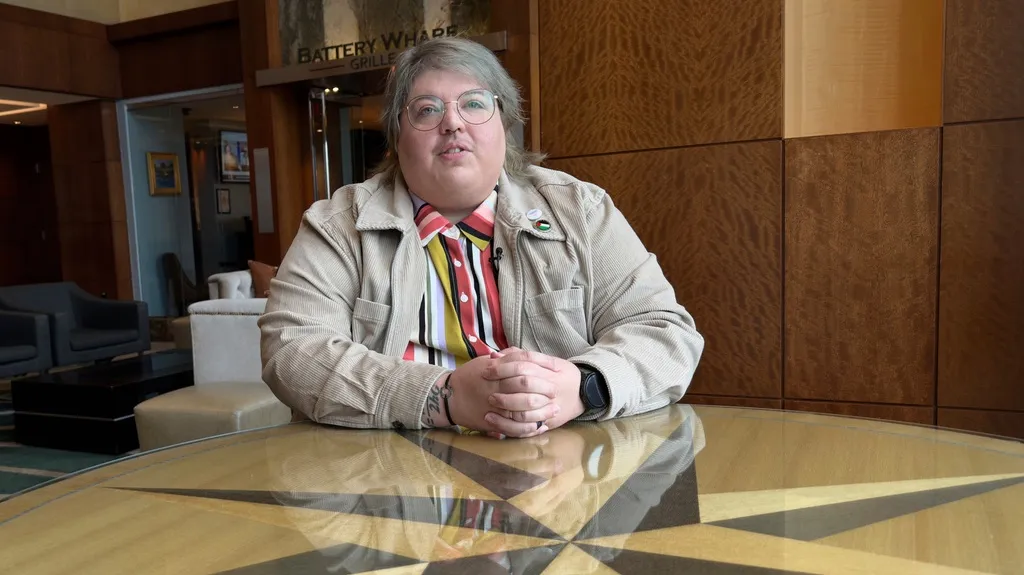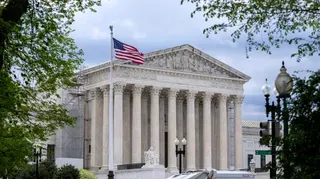January 20, 2010
Opponents Press Gay Marriage Ban in New Hampshire
Steve Weinstein READ TIME: 2 MIN.
Three weeks after the state legalized gay marriage, opponents are asking a House committee to repeal the law and let voters amend the constitution to define marriage as between a man and a woman.
The House Judiciary Committee was holding hearings Wednesday on the two measures, which many observers expect the House to reject when they are brought to the floor in the next few weeks.
Opponents know their chances of success are slim, but they are looking to the November election in hopes Republicans will regain control of the Statehouse and succeed then in repealing the law.
Right now, Democrats are firmly in charge and appear eager to dispose of controversial measures early in the session to avoid lingering debate in an election year. Gay marriage opponents know that and are focusing on a bigger prize: voter sympathy.
In recent weeks, opponents began a grass-roots effort to challenge the law indirectly by suggesting New Hampshire's 400 House members and 24 senators aren't representative of the people's wishes. They point out that in the 31 states where voters have had a say, gay marriage has been rejected.
They plan to raise the issue at town meetings this spring in hopes of passing nonbinding resolutions that will pressure lawmakers to present them with an amendment that defines marriage. They also hope their effort will help elect anti-gay marriage candidates in November.
State Rep. David Bates, a Republican from Windham, is organizing the petition effort to put gay marriage before town voters. He said Tuesday that petitions have been certified in 108 towns. He expects petitions to be completed by a Feb. 2 deadline in about 150 of New Hampshire's more than 200 towns that hold meetings each spring. Petitions must be signed by 25 registered voters in the town to be put on the agenda.
Kevin Smith, executive director of the conservative Cornerstone Policy Research, agreed Tuesday there's not much chance the gay marriage law will be repealed this year. Though he supports repeal, Smith said he is focusing more on the proposed constitutional change and will urge lawmakers to let voters decide the issue.
"People really want an opportunity to have a say," he said.
Janson Wu, staff attorney for Gay and Lesbian Advocates & Defenders, and other gay marriage advocates argue the size of New Hampshire's Legislature makes it one of the most representative democratic bodies in the world.
"New Hampshire realizes it is just wrong to vote on people's rights," Wu said.
A ballot amendment would make New Hampshire a battlefield similar to other states where millions of dollars is spent by groups outside the state, Wu said.
New Hampshire's law legalizing gay marriage took effect Jan. 1. New Hampshire joined Connecticut, Iowa, Massachusetts and Vermont in allowing the unions.
California briefly allowed gay marriage before a popular vote in 2008 banned the practice; a court ruling grandfathered in couples who were already married. Last year, Maine lawmakers approved gay marriage, but voters overturned the law in a referendum.
Smith said he'd expect gay couples married in New Hampshire before a repeal or constitutional amendment would retain their statuses, much as couples in California retained theirs.
Steve Weinstein has been a regular correspondent for the International Herald Tribune, the Advocate, the Village Voice and Out. He has been covering the AIDS crisis since the early '80s, when he began his career. He is the author of "The Q Guide to Fire Island" (Alyson, 2007).







